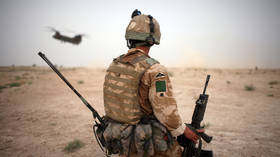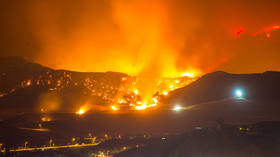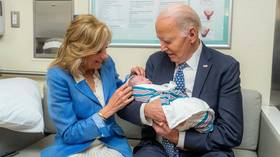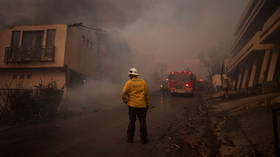‘Islamophobia, EU criticism - two pillars of populism and extremism in Germany’
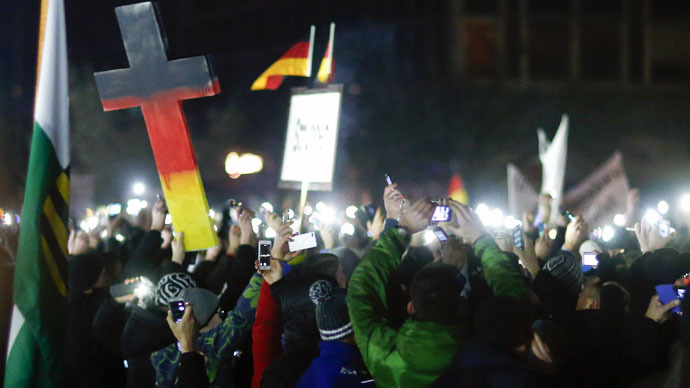
Islamophobia we see now in Germany has nothing to do with classical neo-Nazi ideology, it is partly fueled by right-wing extremists and populists who impose on the locals the idea of a threat coming from Muslims, Daniel Koehler from EXIT-Germany told RT.
German police have established there is a considerable rise in far-right extremism and violence against foreigners in Germany. The attacks seem to be a backlash against the sharp increase in the number of refugees arriving in Germany. It remains the strongest EU economy and attracts thousands of migrants and asylum-seekers. At the same time the Muslim community in Germany is sounding the alarm over rising Islamophobia in the country.
RT:The migrants themselves say Germany is a great country to come to as there are lots of options for education and government support. But is that the kind of help actually fuelling attacks on migrants?
Daniel Koehler: I don’t think that this actually is fueling hate against immigrants. Germany has a long tradition of a rather large hardcore of military neo-Nazis and what we have seen in the last couple of years is a particular kind of Islamophobia that has been fueled in part by right-wing extremists and populist parties in Germany. So it is a combination of what is there in terms of a general sentiment against particular Muslim immigrants, and then what we’ve seen in the global political area with the war against Islamic State, the Syrian conflict, the foreign fighter issue that basically fits back into the fear and feeling in a large part of the German population that Muslims are essentially a threat to German society.
RT:Why there is such hatred towards migrants, especially Muslims? Do Germans see them as a potential threat?
DK: A large part of the population in Germany knows that many European countries have experienced terrorist attacks from Al-Qaeda and Al-Qaeda affiliated groups. So far nothing of this has happened in Germany, there were a couple of attempts of Islamist terrorist attacks but not successful. With a growing perception of groups like Islamic State and al-Qaeda, Germans feel basically that sooner or later this will swap back to Germany and there will be a terrorist attack or something like that.
RT:The anti-EU Alternative for Germany party supports anti-Islamic ideology and those who rally against Islam and its gaining popularity all the time. Are more Germans ready to back the far-right again, despite all that happened in the 20th century?
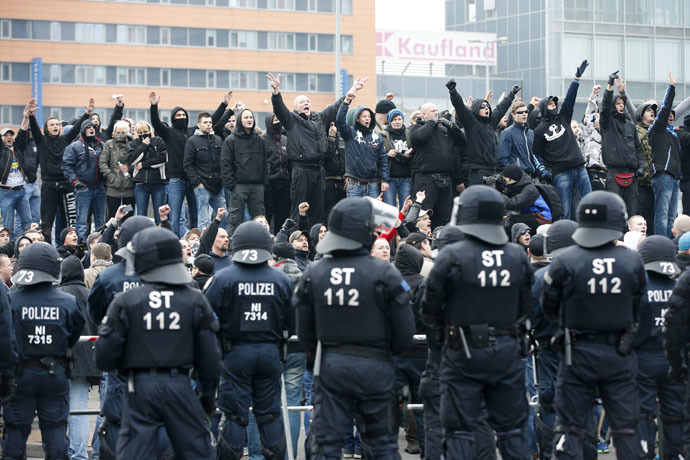
DK: We are used to the classical neo-Nazi national socialist kind of groups with a strong base of anti-Semitism. This is something that is really far away from these groups that are now working. Although this is overlapping and they are neo-Nazis and right-wing extremists working in these mass rallies or even in the anti-EU groups, but basically the basis for them to rally voters and support is against the EU and against Islam. So Islamophobia and EU criticism are the basic two new pillars of fragmented populism and even extremism in Germany. It doesn’t feel like it is related to WWII and National Socialism, although there are of course ideological strains that come from this ideology as well, but people don’t perceive it as such, they think that Islamophobia, against the EU, and against Muslims is something entirely different.
RT:Do you think mass immigration is basically benefitting or harming Germany’s economy?
DK: We know from recent studies that immigration economically speaking is a huge success for Germany. We know that billions of euro profit Germany due to immigrants that work in Germany integrate in Germany and pay taxes. So we know that economically speaking we benefit from immigration but this is really a problem as in many other states like France, Norway, and Sweden. There are basically two levels: there are these hard-working individuals, people that seek help and safety from torture and war, they have a human right to get asylum and then you have a larger scale - politics. These mass rallies that are held in less than a couple of months are usually in geographical areas where really there are not so many immigrants and this is not a huge topic in these areas. So the individuals that are in Germany, they are made to become tools of a larger political struggle, they are instrumentalized by far-right groups to fuel hatred against immigration. The toughest thing is that these people that come here from war zones have nothing left and try to rebuild their lives; they almost never can do anything about it. They are just chess pieces in a larger chess game actually.
RT:Is there any peaceful ways to solve this conflict between the locals and migrants?
DK: There are many ways for a peaceful conflict solution. First of all, communication is the most important. You have to include the local population when, for example, an asylum seeker hostel or any refugee home is opened in a local vicinity. You cannot decide this over the heads of the people; you have to explain human rights and democratic principles on which Germany is built, and why we help people that come from war zones seeking help. And we basically economically benefit from them. There is a lack of communication which is used and instrumentalized by far-right groups that basically say “Listen, your local politicians basically don’t talk to you, they ignore your political will. We are the only ones listening to you,” and they come with falsified statistics about rising crime, drug problems, lack of integration which is untrue. But there is a great lack of communication and politicians need to include the local population, need to explain democratic values and principles better.
The statements, views and opinions expressed in this column are solely those of the author and do not necessarily represent those of RT.
The statements, views and opinions expressed in this column are solely those of the author and do not necessarily represent those of RT.



